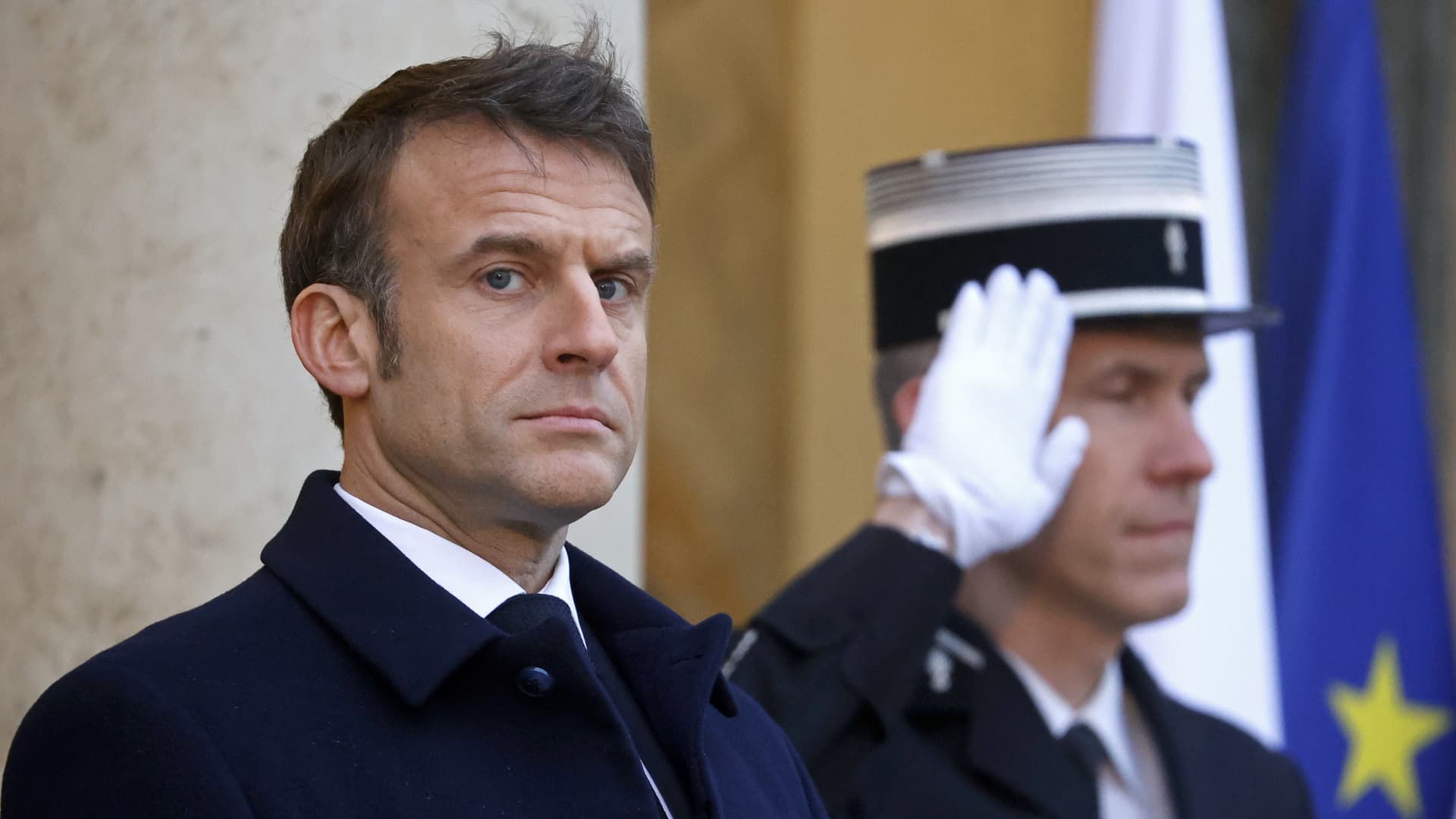
- The first round of a snap parliamentary election in France points to a surge in votes for the anti-immigrant National Rally party, with President Emmanuel Macron's centrist alliance coming into third place.
- Early polling data from national broadcaster France 2 indicates that National Rally (RN) won 34% of the vote while the leftist New Popular Front (NFP) alliance got 28.1%.
- Macron's centrist Together bloc garnered 20.3%, according to initial projections, which are based on samples of actual results taken from polling stations that closed earlier in the afternoon.
The first round of a snap parliamentary election in France has seen a surge in votes for the anti-immigrant National Rally party, with President Emmanuel Macron's centrist alliance coming in third place.
Early polling data from national broadcaster France 2 indicated that National Rally (RN) won 34% of the vote while the leftist New Popular Front (NFP) alliance got 28.1%. Macron's centrist Together bloc garnered 20.3%, according to initial projections.
On Monday morning, France's Interior Ministry published updated figures showing RN and its allies had won 33.1% of the vote, the NFP was in second with 28% and Macron's coalition had reached 20%.
Get top local stories in DFW delivered to you every morning. Sign up for NBC DFW's News Headlines newsletter.
The second round of voting on July 7 is the one to watch, according to Antonio Barroso, deputy director of Research at Teneo.
"First-round victories tend to say little about the overall results (absent a surprisingly high number of wins obtained by a specific party). This is why, beyond the overall percentage of votes for each party, the main issue to watch on Sunday night is how many candidates from each party will make it to the second round," he said in a note Wednesday.
Money Report
"If, as expected, Together does poorly in the first round, there will be numerous races between the NFP and the RN."
Ahead of the first ballot, French voter polls suggested the hard-right National Rally party would win around 35% of the vote in the election, followed by the leftist NFP alliance and then a coalition of pro- Macron parties in third place.
As such, National Rally is widely expected to significantly increase the number of seats it has in France's 577-seat parliament, the National Assembly, from the current level of 89.

Nonetheless, the Sunday projections suggest that no one party has won an outright majority of at least 289 seats after an initial round of voting, pointing to a hung parliament and a period of political and economic uncertainty following the ballots.
French President Emmanuel Macron will stay in office until 2027, whatever the vote outcome, but he could face pressure to elect a new prime minister from National Rally (even if the party falls short of an absolute majority in the final vote), with the most likely candidate being RN's 28-year-old President Jordan Bardella.
That new PM would have significant say over France's domestic and economic policy while Macron would remain in charge of foreign policy and defense. In any case, a so-called "cohabitation" could make government tricky, prompting some concern among economists as to how the vote could affect the euro zone's second-largest economy.

Macron shocked Europe's political establishment when he called the snap ballot earlier in June after his Renaissance party was trounced in the European Parliament elections by National Rally.
Political analysts said Macron's move was an extreme gamble, with the president betting that French citizens would fear and ultimately reject the prospect of a far-right government. Instead, he appears to have emboldened his political rivals.
— CNBC's Charlotte Reed contributed to this article






